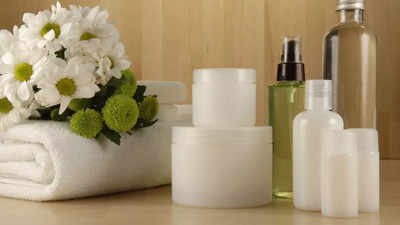Over 35 million new cancer cases are predicted in 2050 – a 77% increase from the estimated 20 million cases in 2022, as per World Health Organization. The rapid rise in cancer is not only attributed to the aging population but several risk factors, including environmental factors that include exposure to harmful chemicals considered as carcinogens.
Benzene, a known human carcinogen, has been detected in various personal care products, including dry shampoos, acne medications, and sunscreens. The Environmental Protection Agency (EPA) classifies benzene as a human carcinogen, and it has been found that long-term exposure to high levels can lead to leukemia and other blood-related cancers.
A recent study by Valisure LLC found that approximately one-third of benzoyl peroxide products, commonly used for acne treatment, contained benzene levels exceeding FDA limits. Brands like Proactiv and CVS Health were among those affected, while others like Neutrogena and Clean & Clear were not.
However, certain members of the scientific community do not agree with the findings and have questioned Valisure’s methodology, that involves heating products beyond temperatures which could accelerate the breakdown of ingredients and suggest a higher risk of benzene exposure than consumers would actually face.
“They are known for making wild comparisons in their reports,” Michelle Wong, a chemist and science educator in Australia who has criticized Valisure’s work online told New York Times.
“Companies do often test products at elevated temperatures to simulate how they would break down over time and to set expiration dates, said Kelly Dobos,” a consultant cosmetic chemist and adjunct professor of cosmetic science at the University of Cincinnati told NYT.
What is benzene?
Benzene is a colorless and flammable liquid with a sweet odor. It evaporates quickly when exposed to air. It is formed from natural processes, such as volcanoes and forest fires, but most people are exposed to benzene through human activities.
According to Cancer.org, benzene is one of the 20 most widely used chemicals in the United States. It is used to make plastics, resins, lubricants, rubbers, dyes, detergents, drugs, and pesticides.
Dangers of benzene in personal care products
The presence of benzene in these products is concerning, as even low levels of exposure can pose health risks. As per The American Cancer Society, benzene exposure has been linked to an increased risk of leukemia and other blood cancers.
How to safely use personal care products
To minimise exposure, consumers should store personal care products in cool, dark places, avoid using aerosol versions, and stay informed about product recalls. It’s also advisable to consult with healthcare professionals regarding the use of products containing benzoyl peroxide.
Switch to dry shampoos that come in powder formulations instead of aerosol products.
Experts say the majority of sunscreens do not have detectable levels. However, one should still make sure not to store sunscreen in your car and stay away from aerosols.
Ultraviolet light emitting devices lead to cell death, cancer-causing mutations in human
I’m Manas Ranjan Sahoo: Founder of “Webtirety Software”. I’m a Full-time Software Professional and an aspiring entrepreneur, dedicated to growing this platform as large as possible. I love to Write Blogs on Software, Mobile applications, Web Technology, eCommerce, SEO, and about My experience with Life.





